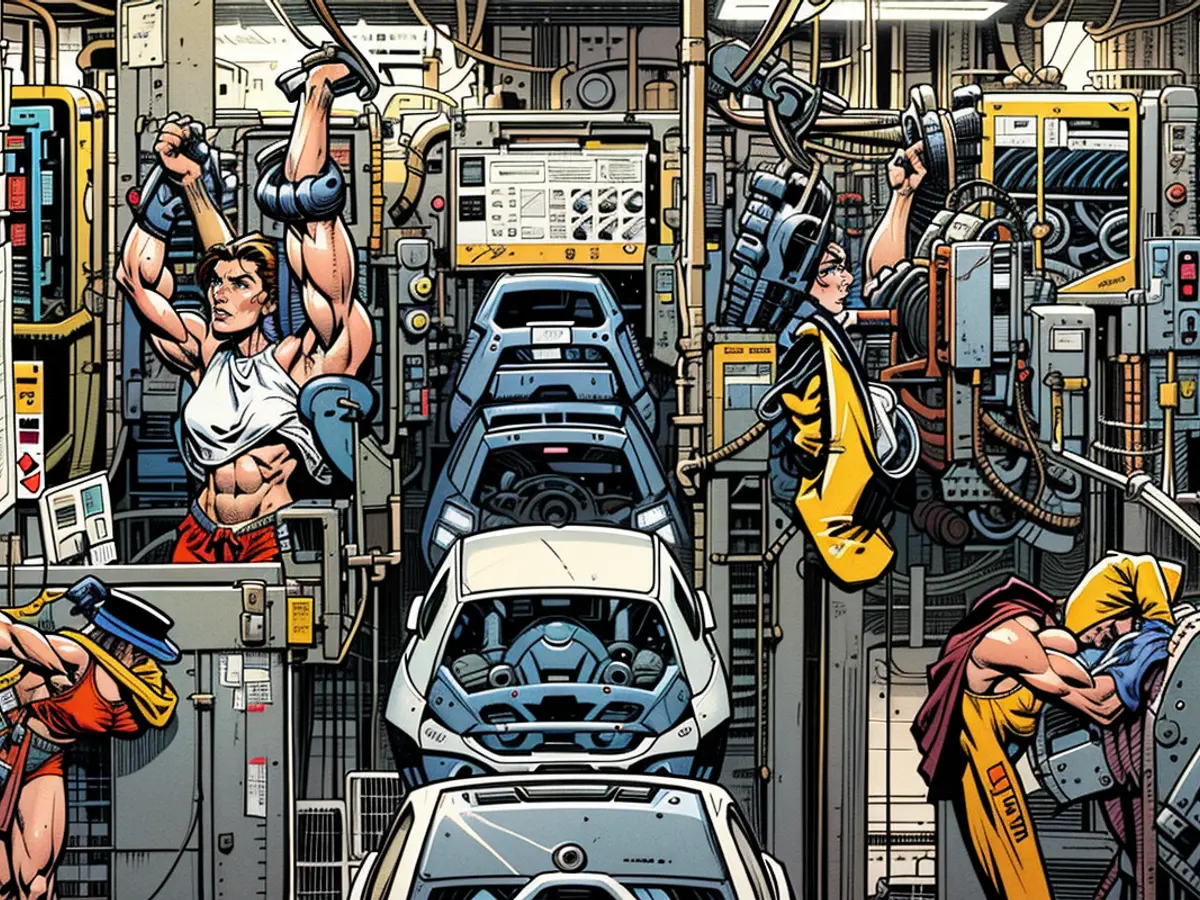German industry weakens and slows down
It is already the fifth consecutive order decline in the industry: The German industry is having a hard time getting back on its feet, and the DIHK does not see any improvement in sight. Despite a robust global economy, there is no discernible increase in foreign orders, it is stated there. A swift recovery is "not to be expected."
The German industry's drought continues with the fifth consecutive order decline. Orders fell surprisingly by 1.6 percent in May compared to the previous month, as the Federal Statistical Office reported. Economists had expected a rise of 0.5 percent. "The downward trend is still in full swing," said Chief Economist Alexander Krüger of Hauck Aufhäuser Lampe Private Bank. For the past quarter, a clear order deficit is evident. "It is to be hoped that the global economy will prevent further deterioration."
The German Industry and Trade Chamber (DIHK) expects little improvement for now. "Despite a robust global economy, there is no discernible increase in foreign orders among the companies," explained DIHK Foreign Trade Expert Melanie Vogelbach. The situation in global industry, for example in the USA and China, is also difficult, said Chief Economist Thomas Gitzel of VP Bank. A significant improvement is not visible in the short term. "Therefore, German growth is not expected to go on a tour."
Similarly, the DIHK also points to a weak domestic demand. "Domestic companies are holding back on orders due to structural problems such as high energy costs or personnel costs, bureaucratic burdens, and a skilled labor shortage," said Vogelbach. "Therefore, a swift recovery is not to be expected."
Order business stalls
The industry data indicated a rather subdued industrial conjuncture in the coming months, commented the Federal Ministry of Economics on the development. "Only in the context of the further recovery of world trade and the gradual revival of demand for industrial goods could the order intakes stabilize." In April, there was a decline of 0.6 percent. Orders from domestic sources rose by 0.5 percent in May, while those from abroad fell by 2.8 percent. Above all, orders from countries outside the Eurozone fell by 4.6 percent. Without the often fluctuating - and this time above-average many - large orders, there was a decline in orders compared to the previous month by 2.2 percent.
In the three-month comparison, the order intake from March 2024 to May 2024 was even 6.2 percent lower than in the three months before. While orders for machines, plants and other investment goods fell by 4.3 percent compared to April, orders for consumer goods rose by 4.9 percent. The situation varied in individual industries. Fewer orders were received in the heavyweight sectors of machinery manufacturing (-1.9 percent), automobiles and automotive parts (-2.9 percent), pharmaceutical producers (-2.4 percent), and other vehicle manufacturing (-19.2 percent). An increase was recorded in the areas of data processing, electrical and optical equipment (+11.2 percent), metal production and processing (+3.8 percent), and chemistry (+1.7 percent).
Sunken was the turnover in the Processing Industry in May as well: It decreased by 0.7 percent compared to the previous month, following a decrease of 1.0 percent in April. "We still consider it more likely that the German economy will recover in the second half of the year," said Commerzbank Economist Ralph Solveen. However, the order data contradicted the expectation that this recovery - "contrary to what many expect - has not yet set in during the second quarter and will rather be moderate." Solveen warned, "And the risk is increasing that the start of the recovery will be further delayed."
The BDI shares the DIHK's concerns about the industry's current situation, noting a lack of improvement in foreign orders despite a robust global economy. The Federal Ministry of Economics also expresses concern about the order business, stating that a significant improvement is not expected until world trade recovers and demand for industrial goods revives.








